-
Home
-
Shop
New -
Explore
-
Support
-
Track Order
Feb 10, 2023
Author:Jackson Watson
If you've ever noticed your cat drooling excessively, you may be wondering why this is happening. There can be several reasons why cats drool, and some of them are quite serious. This article will discuss the most common causes of excessive drooling in cats. We will also provide tips on how to treat the problem if a medical condition causes it. So, why is my cat drooling so much? Keep reading to find out!
If you've ever owned a cat, you know that they're not exactly the tidiest of creatures. They're known for their penchant for licking themselves clean, and as a result, their fur can often be covered in saliva. But what about when your cat starts drooling excessively? Is that normal behavior? Most of the time, drooling in cats is perfectly normal. In fact, it's often a sign that they're happy and content. When your cat starts purring and kneading their paws, it may also start to drool a little bit - and that's usually nothing to worry about. However, there are some instances in which excessive drooling can be a sign of a medical problem. If your cat is drooling more than usual, and they seem to be in discomfort, it's best to take them to the vet right away. Excessive drooling can sometimes be a sign of an infection or an obstruction in the throat or esophagus - so it's better to have them checked.
Most cats are fastidious groomers and don't usually need our help to keep them clean. But every now and then, you may notice your cat drooling more than usual. While a little drool here and there is nothing to worry about, excessive drooling can indicate an underlying health issue. Let's take a look at 10 possible reasons why is my cat drooling all of a sudden.
If you notice your cat drooling and pawing at its mouth, it may have something caught in its teeth or gums. Check their mouth for any foreign objects, such as pieces of grass, string, or bones. If you see anything stuck, try to remove it carefully with a pair of tweezers. If you can't remove the object yourself, take your cat to the vet for help.
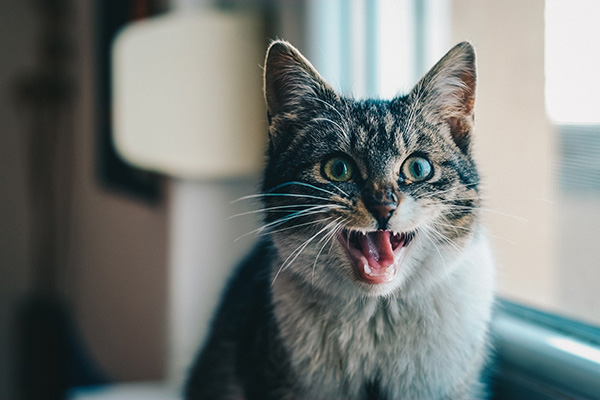
If your cat is drooling more than usual, it could be a sign of nausea. Nausea can have many causes, including motion sickness, eating too fast, viral infections, and certain medications. If your cat is also showing other signs of nausea, such as lack of appetite or vomiting, take them to the vet right away.
If your cat is drooling excessively and doesn't seem to be feeling well, there's a chance it may be sick. Excessive drooling can sometimes be a symptom of an underlying health condition, such as kidney disease or liver disease. If your cat is showing other signs of illness, such as lethargy, appetite loss, or vomiting, it's best to take them to the vet for a check-up.
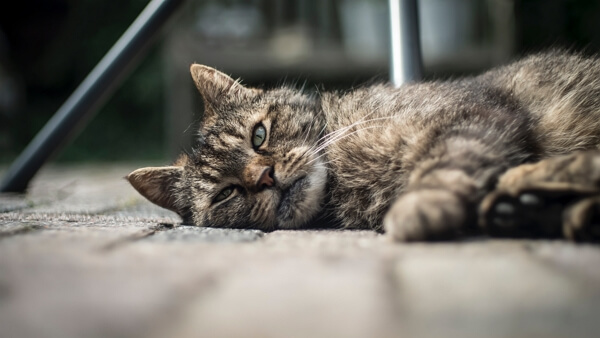
Just like humans, cats can experience anxiety. And one of the common physical signs of anxiety in cats is drooling. If your cat is drooling excessively, take a look at their environment and see if there are any new stressors that could be causing them to feel anxious. Has there been a recent move or change in the family dynamic? Are there new pets in the home? Has their routine changed? Anxiety can also be caused by changes in a cat's diet or medication. If you've recently switched your cat's food or started them on a new medication, that could be the cause of their drooling. Talk to your veterinarian about any potential changes that could be causing your cat stress and see if there are any alternatives that might be better for them.
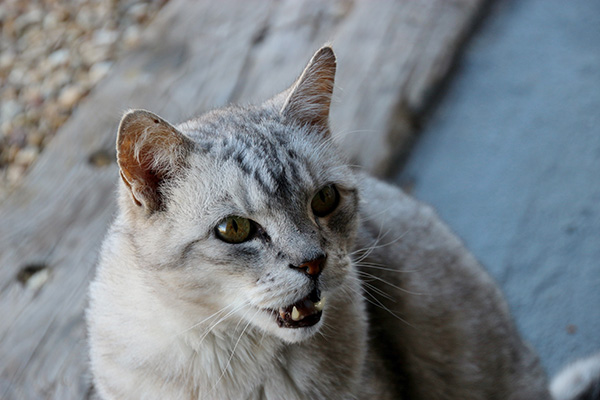
One of the most common reasons why your cat may be drooling excessively is an upper respiratory infection. Cats with upper respiratory infections will often have a fever, runny nose, and watery eyes in addition to increased drooling. If you suspect your cat has an upper respiratory infection, take them to the vet for treatment. Upper respiratory infections are highly contagious among cats and can be spread through close contact with other infected cats, sharing of food and water bowls, or even exposure to the virus in the environment. If your cat has an upper respiratory infection, it's important to keep them isolated from other cats until they've recovered. Treatment for upper respiratory infections typically includes antibiotics and supportive care.
Cats can suffer from heatstroke just like people. When the weather is hot and humid, keep your cat indoors in a cool, air-conditioned room. If your cat must go outside, limit its time in the sun and make sure he has access to fresh, cool water at all times. Signs of heatstroke in cats include excessive drooling, panting, rapid breathing, lethargy, and weakness. If you think your cat is suffering from heatstroke, move him to a cool area immediately and contact your veterinarian for further instructions. Heatstroke can be fatal, so it's important to take action quickly if you suspect your cat is affected.
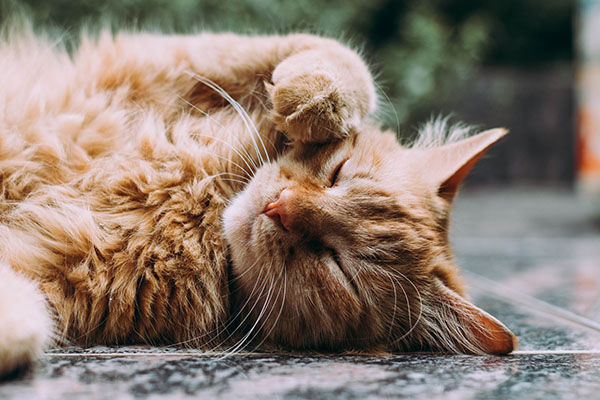
You can also consider getting a cat water fountain. These devices keep water circulating and aerated, so it's more appealing to drink. Cats are attracted to the sound of running water and will often drink more frequently when one is present. This can help prevent dehydration and heatstroke on hot days. One of the best water fountains you can get is WOpet Cat Water Drinking Fountain. It can store up to 2 liters of water and offers 2 modes of drinking - flower fountain and gentle fountain mode. Your cat will love it and stay hydrated all day long!
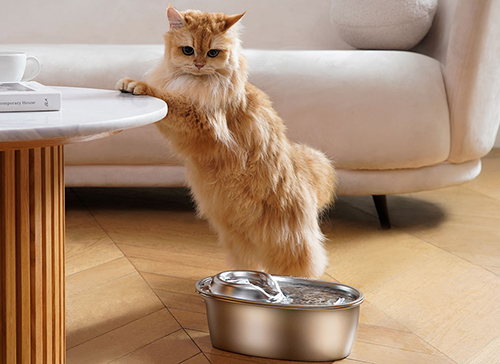
Excessive drooling can also be a sign of dental disease. If your cat's teeth are yellow or brown, they may have plaque buildup or tartar. If left untreated, dental disease can cause tooth loss, pain, and other serious health problems. So, if you notice your cat drooling and pawing at its mouth, make an appointment with your vet for a dental check-up. Brushing your cat's teeth on a daily basis can help prevent plaque and tartar buildup. You can purchase special cat toothbrushes and toothpaste at your local pet store. Be sure to use a toothbrush that's the right size for your cat's mouth, and start slowly, introducing your cat to the toothbrush a little bit at a time.
Some cats drool when they're feeling content and relaxed. If your cat is purring and seems happy, then there's likely nothing to worry about.
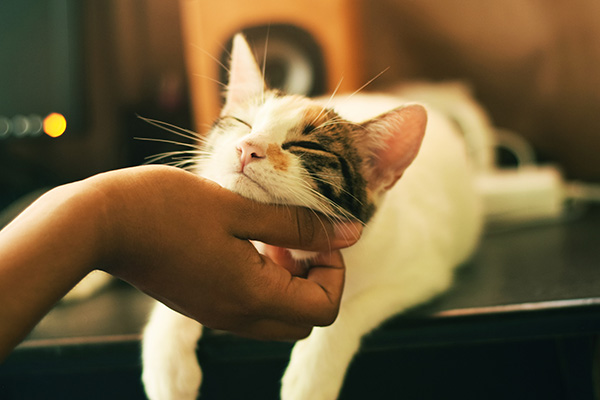
One possible reason why your cat is drooling all of a sudden is that they're having trouble swallowing. This could be due to several things, including obstruction in their throat or esophagus, or even something as simple as a hairball. If you notice your cat drooling and also see them making an effort to swallow, it's best to take them to the vet to get checked out.
Organ disease is a possible reason your cat may be drooling excessively. If your cat has kidney disease, liver disease, or an infection, it may start to drool more than usual. If you notice your cat drooling and seem to be in pain or discomfort, take them to the vet immediately.
Popular Post

Why Does My Cat Cough After Drinking Water? 8 Potential Reasons
Mar 13, 2023
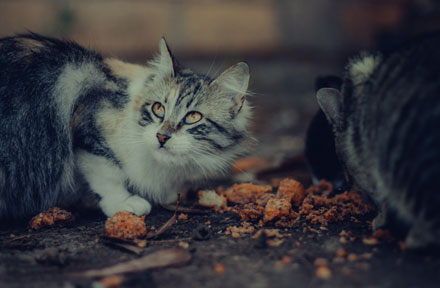
My Cat Only Eats A Little at A Time - What to Do?
Feb 27, 2023

What to Feed a Sick Dog With No Appetite? [2024 Guide]
May 16, 2023

Why Is My Dog Being Destructive All of A Sudden?
Feb 04, 2023
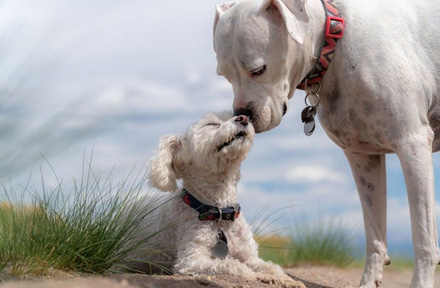
Do Puppies Miss Their Moms
Feb 11, 2023
Copyright © 2024 WOPET. All Rights Reserved.